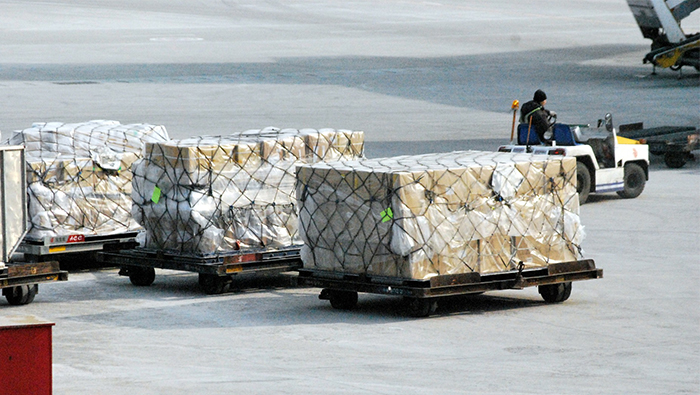
Muscat: Middle Eastern carriers reported a decrease of 10.7 per cent for global and international demand in 2022 compared to 2021 and an increase in capacity of 4.3 per cent (+4.5 per cent for international operations), IATA said in its December 2022 report.
“Compared to 2019 (pre-COVID levels), demand was 1.6 per cent below for global and international operations and capacity was down 6.3 per cent (-6.1 per cent for international operations).”
“In December airlines in the region posted a 14.4% decrease in demand for both global and international operations compared to 2021. Capacity increased 2.8 per cent (+3.0 per cent for international operations) during the same period,” the IATA report said.
The International Air Transport Association (IATA) released data for global air freight markets showing that 2022 full-year demand for air cargo took a significant step back from 2021 levels but was close to 2019 performance.
Global full-year demand in 2022, measured in cargo tonne-kilometres (CTKs), was down 8.0 per cent compared to 2021 (-8.2 per cent for international operations). Compared to 2019, it was down 1.6 per cent (both global and international).
Capacity in 2022, measured in available cargo tonne-kilometres (ACTKs), was 3 per cent above 2021 (+4.5 per cent for international operations). Compared to 2019 (pre-COVID) levels, capacity declined by 8.2 per cent (-9.0 per cent for international operations).
December saw a softening in performance with global demand at 15.3 per cent below 2021 levels (-15.8 per cent for international operations). Monthly cargo demand tracked below 2021 levels from March 2022. Global capacity was 2.2 per cent below 2021 levels (0.5 per cent for international operations). This was the tenth consecutive monthly contraction compared to the 2021 performance.
The report further said that global new export orders, a leading indicator of cargo demand, have stayed at the same level since October. For major economies, new export orders are shrinking except in Germany, the US, and Japan, where they grew.
Global goods trade decreased by 1.5 per cent in November, down from a 3.4 per cent increase in October.
“In the face of significant political and economic uncertainties, air cargo performance declined compared to the extraordinary levels of 2021. That brought air cargo demand to 1.6 per cent below 2019 (pre-pandemic) levels. The continuing measures by key governments to fight inflation by cooling economies are expected to result in a further decline in cargo volumes in 2023 to -5.6 per cent compared to 2019,” said Willie Walsh, IATA’s Director General.
“It will, however, take time for these measures to bite into cargo rates. So, the good news for air cargo is that average yields and total revenue for 2023 should remain well above what they were pre-pandemic. That should provide some respite in what is likely to be a challenging trading environment in the year ahead,” he added.